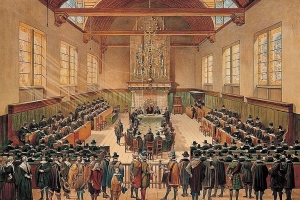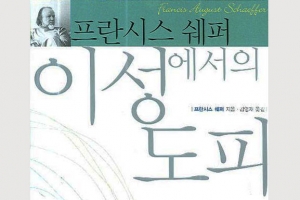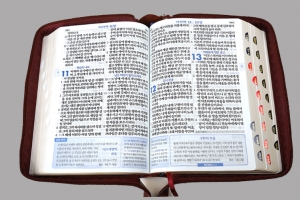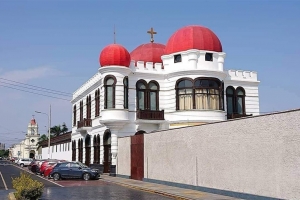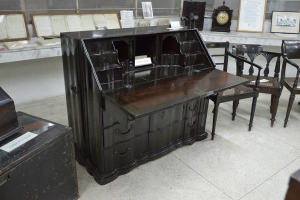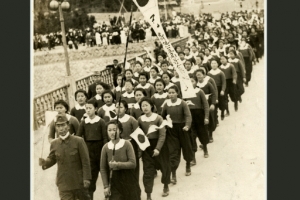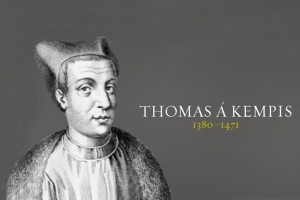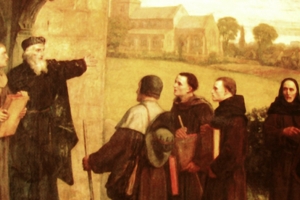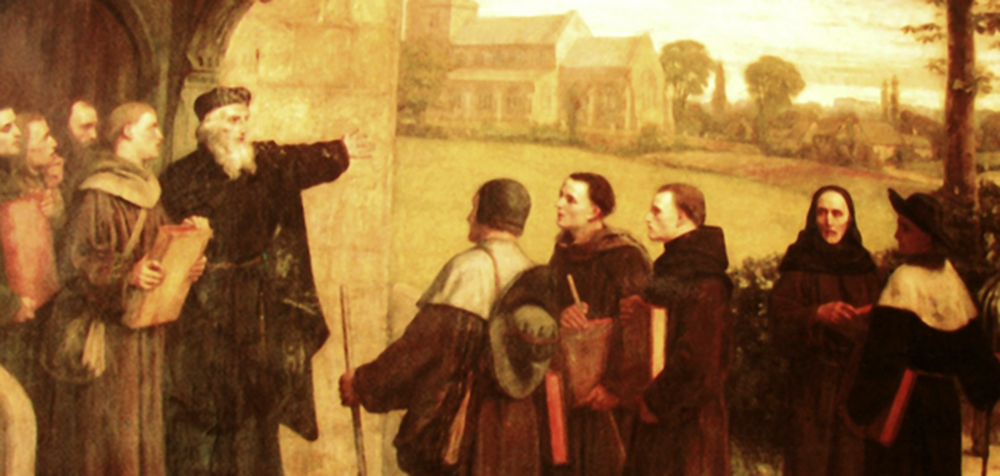
롤라즈의 "12가지 선언문"(1396-1397)
롤라즈(Lollards)는 옥스포드대학교의 교수 존 위클리프(c.1320-1384)의 가르침에서 영감을 받아 영국기독교의 개혁을 촉구한 영국 중세 교회개혁운동가들이었다. 이둘은 영국기독교회가 개혁해야 할 열 두 가지리를 정리하여 "12가지 결론"이라는 선언문으로 발표했다. 이것을 영국 의회에 제출했고, 전형적인 중세 방법인 플래카드로 웨스트민스터교회당과 세인트 폴 대성당의 문에 못 박아 붙였다. 의회는 이것에 대한 아무른 조처를 취하지 않았다. 이 성명서는 더 자세한 정보를 원하는 사람들을 위해 확장된 37개의 결론 곧 교회 내 부패에 반대하는 37개 선언 조항들을 담고 있다.
요약
첫 번째 결론: 교회의 상태
영국 교회가 로마 교회의 나쁜 예에 이끌려 시간적 권력의 문제에 너무 관여하게 되었다.
두 번째 결론: 사제직
성직자와 주교의 서품에 사용되는 의식은 성경적 근거나 전례가 없다.
세 번째 결론: 성직자 독신주의
성직자 독신의 실천이 성직자들 사이의 동성애를 장려했다.
네 번째 결론: 화체설
화체교리가 일상적인 대상들에 대한 우상 숭배로 이어진다.
다섯 번째 결론: 엑소시즘과 성찬
사제들이 수행하는 구마(驅魔)와 성찬은 일종의 주술이며 기독교 신학과 양립할 수 없다.
여섯 번째 결론: 세속적인 사무를 수행하는 성직자들
교회에서 고위직을 맡고 있는 사람들이 거대한 세속 권력의 자리를 동시에 차지하는 것은 부적절하다.
일곱 번째 결론: 죽은 자를 위한 기도
특정 개별 사망자의 영혼을 위한 기도는 자선을 베푸는 것이 아니다. 왜냐하면 그것은 기도를 받지 않는 다른 축복받은 사망자들을 모두 배제하기 때문이다. 그리고 재정적인 기여를 함으로써 사망자를 위한 기도를 요청하는 행위는 교회를 부패시키는 일종의 뇌물이다.
여덟 번째 결론: 순례자
순례의 관행과 유물에 대한 숭배는 기껏해야 영적인 가치에 효과적이지 않으며 최소한 창조된 대상에 대한 숭배에 있어서는 우상숭배에 대한 최악의 접근법이다.
아홉 번째 결론: 고백성사
죄의 용서를 위한 자백의 실행이 신성모독적이다. 왜냐하면 오직 신만이 죄를 용서할 수 있는 힘을 가지고 있기 때문이다. 성직자들이 그 힘을 가지고 있다면 비록 그들이 자백을 거부하더라도 그 용서를 누구에게도 유보하는 것은 잔인하고 자선을 베푸는 것이기 때문이다.
열 번째 결론: 전쟁, 전투, 십자군 전쟁
기독교인들이 전투를 자제해야 하며 특히 십자군 전쟁과 같은 종교적인 정당성이 부여된 전쟁은 그리스도가 사람들에게 그들의 적을 사랑하고 용서하라고 가르쳤기 때문에 신성모독이다.
열한 번째 결론: 여성의 지속과 낙태 서약
독신 서약을 한 교회의 여성들이 성관계를 하고 임신을 한 후 서약을 어겼다는 사실을 숨기기 위해 낙태를 하고 있다.
열두 번째 결론: 예술과 공예
기독교인들이 예술과 공예의 아름다운 물건을 만드는 데 너무 많은 에너지와 관심을 쏟고 있으며, 불필요한 노력을 자제함으로써 삶을 단순화하고 경건함에 대한 헌신을 새롭게 해야 한다.
선언서의 원 텍스트는 중세 영어로 쓰여졌다. 현대 영어 번역문은 "The Twelve Conclusions of the Lollards," English Historical Review 22 (1907), 292-304에 수록되어 있다. 아래 글의 원제는 "열두 가지 이단에 대항하다"("Against the Twelve Heresies" )이다.
The Twelve Conclusions of the Lollards
We poor men, treasurers of Christ and his Apostles, denounce to the Lords and the Commons of the Parliament certain conclusions and truth for the reformation of the Holy Church of England, the which has been blind and leprous many years by the maintenance of the proud prelacy, borne up with flattering of private religion, the which is multiplied to a great charge and onerous [to] people here in England.
The First Conclusion:
State of The Church
When the Church of England began to dote in temporality after her stepmother, the great Church of Rome, and churches were slain by appropriation to diverse places. Faith, Hope, and Charity began for to flee out of our Church. For Pride with his sorry genealogy of deadly sins challengeth it by title of heritage. This conclusion is general and proved by experience, custom, and manner, as you shall after hear.
The Second Conclusion:
The Priesthood
The Second Conclusion is this: Our usual priesthood, the which began in Rome feigned of a power higher than angels, is not the priesthood the which Christ ordained to his Apostles. This conclusion is proved: for the priesthood of Rome is made with signs, rites, and bishops' blessings, and that is of little virtue. nowhere ensampled in the Holy Scripture, for the bishops ordinals in the New Testament be little of record. And we can not see that the Holy Ghost, for any such signs, gives any gifts, for he and his noble gifts may not stand with deadly sin in no matter person. The corollary of this conclusion is that it is full uncouth to many that be wise to see bishops play with the holy ghost in making of their orders, for they give crowns in characters in stead of white harts, and that is the livery of Antichrist, brought into Holy Church to color idleness.
The Third Conclusion:
Clerical Celibacy
The Third Conclusion, sorrowful to hear, is: That the law of continence annexed to priesthood, that in prejudice of women was first ordained, induces sodomy in Holy Church; but we excuse us by the Bible, for the suspect decree that says we should not name it. Reason and experience prove this conclusion. For delicious meats and drinks of men of Holy Church will have needful purgation or worse. Experience for the privy assay of such men is that they like not women. The corollary of this conclusion is that the private religions. beginners of this sin, were most worthy to be annulled but God, for his might, of privy sin send open vengeance.
The Fourth Conclusion:
Transubstantiation
The Fourth Conclusion that most harms the innocent people is this: That the sacrament of bread induces all men but a few to idolatry, for they ween that Christ's body, that never shall out of heaven, by virtue of the priest's word should be essentially enclosed in a little bread, that they show to the people. But would God that they would believe that the Doctor Evangelicus says in his Trialogue, quod panis materialis est habitudinaliter corpus Christi. For we suppose that on this wise may every true man and woman in God's law make the sacrament of the bread without any such miracle. The corollary of this conclusion is that if Christ's body be endued with everlasting joy, the service of Corpus Christi made by Friar Thomas is untrue and painted full of false miracles, and that is no wonder, for Friar Thomas that same time, holding with the Pope, would have made a miracle of a hen's egg, and we know well that every lie openly preached turns itself to villainy that ever was true and without lack.
The Fifth Conclusion
Exorcisms and Hallowings
The fifth conclusion is this: that exorcisms and hallowings, made in the church, of wine, bread, and wax, water, salt, oil and incense, the stone of the altar, upon vestment, miter, cross, and pilgrim staffs be the very practice of necromancy rather than of the holy theology. This conclusion is proved thus: For by such exorcisms creatures be charged to be of higher virtue than their own kind, and we see no thing of change in no such creature that is so charmed but by false belief, the which is the principal of the Devil's craft. The corollary of this, that is the book that charmeth holy water spread in Holy Church were all true, us thinks verily that holy water used in holy church should be the best medicine to all manner of sickness. Cuius contrarium experimur.
The Sixth Conclusion:
Clerics in Secular Offices
The sixth conclusion that maintaineth much pride is: that a king and a bishop all in one person, a prelate and a justice in temporal cause, a curate and an officer in worldly service, make every realm out of good rule. This conclusion is openly showed, for temporality and spirituality be two parts of Holy Church and therefore he that hath taken him to the one should not meddle him with the other, quia nemo potest duobus dominis servire. Us thinketh that hermaphrodite or ambidexter were a good name to such men of double estate. The corollary is that for we, procurators of God, for this cause pursue to this Parliament that all manner of curates, both high and low, be fully excused of temporal office and occupy them with their cure and naught else.
The Seventh Conclusion:
Prayers for the Dead
The Seventh conclusion that we mightily affirm is: that special prayers for dead men's souls made in our church, preferring one by name more than another, this is the false ground of alms deeds, on the which all alms houses in England be wickedly grounded. This conclusion is proven by two skills. One is for prayer meritorious and of value should be a work proceeding from high charity, and perfect charity accepts no persons, quia diliges proximum tuum, etc. Wherefore us thinks that the gifts of temporal goods to priests and to alms houses is the principal cause of special prayers, the which is not far from simony. Another skill for special prayer made for men damned to everlasting pain is to God greatly displeasing, and though it be doubt, it is lightly to true Christian people that the founders of the alms houses for their venomous donation be for the most part passed the broad way. The corollary is the prayer of value s[ringing out of perfect charity should embrace in general all those that God would have saved and leave their merchandise now used for special prayers made to mendicants and possessioners and other souls' priests, the which be a people of great charge to all the realm maintained in idleness, for it was proved in a book that the king heard that an hundred of alms houses sufficed to the realm and thereof should fall the greatest increase possible to temporal part.
The Eighth Conclusion:
Pilgrimages
The eighth conclusion needful to tell the people beguiled is the pilgrimage, prayers, and offerings made to blind roods and deaf images of tree and stone be near kin to idolatry and far from alms deeds. And though this forbidden imagery be a book of errors to the lewd people, yet the image used of Trinity is most abominable. This conclusion God openly showeth, commanding to do almsdeeds to men that be needy. for they be the image of God in a more likeness than the stock of the stone, for God sayeth not Faciamus lignum ad ymaginem et similitudinem nostram aut lapidem, but faciamus hominem etc. For the high worship that clerks call latria longeth to the godhead alone and the lower worship that is called dulia longeth to man and to angel and to lower creatures. The corollary is that the service of the Rood, done twice every year in our church, is fulfilled of idolatry, for if the Rood tree, nails, and the spear, and the crown of God should be so holy worshipped, then were Judas' lips, whoso might them get, a wonder great relic. But we pray thee, pilgrim, us to tell when thou first offerest to saints' bones enshrined in any place, whether relieves thou the saint that is in bliss or the alms house that is so well endowed. For men be canonized, God knows how, and for to speak more in plain, true Christian men suppose that the points of that noble man that men call Saint Thomas, were no cause of martyrdom.
The Ninth Conclusion:
Confession
The ninth conclusion that holdeth the people low is, that the articles of confession that is said necessary to the salvation of man, with a feigned power of absolution enhanceth priests' pride, and giveth them opportunity of calling other than we will not say. For lords and ladies be arrested that for fear of their confessors, that they dare not say a truth, and in time of confession is the best time of wooing and of privy continuance of deadly sin. They say that they be commissaries of God to deem of every sin, to foul and cleanse whomso they like. They say that they have the keys of heaven and of hell, they may curse and bless, bind and unbind at their own will, in so much that for a bushel of wheat or twelve pence by year they will sell the bliss of heaven by charter of clause of warranty, ensealed with the common seal. This conclusion is seen in use that it needeth none other proof. Correlarium: The Pope of Rome that feigneth him high treasurer of holy church, having the worthy jewel of Christ's passion in his keeping, with the deserts of all hallows of heaven, by which he giveth the pardon a pena et a culpa. He is a treasurer most banished out of charity, since he may deliver the prisoners that be in pain at his own will, and make himself so that he shall never come there, Here may every true Christian well see that there is much privy falseness hid in our church.
The Tenth Conclusion:
War, Battle, and Crusades
The tenth conclusion is that manslaughter by battle or law of righteousness for temporal cause or spiritual with out special revelation is express contrary to the New Testament, the which is a law of grace and full of mercy. This conclusion is openly proved by example of Christ's preaching here on earth. the which most taught to love and to have mercy on his enemies. and not for to slay them. The reason is of this, that for the more party, there men fight, after the first stroke charity is broken; and who so dyeth out of charity goth the high way to hell. And over this, we know well that no clerk can find by scripture or by reason lawful punishment of death for one sin and not for another. But the law of mercy, that is the New Testament, forbade all manslaughter: in euangelio dictum est antiquis. Non occides. The corollary is: it is an holy robbing of poor people when lords purchase indulgences a pena et a culpa to them that helpeth with his host. and gathereth to slay the Christian men in far lands for good temporal, as we have seen. And knights, that run to heathenness to get them a name in slaying of men, get much maugré of the King of Peace; for the meekness and sufferance our belief was multiplied, and fighters and manslayers Jesu Christ hateth and menaceth. Qui gladio percutit, gladio peribit.
The Eleventh Conclusion:
Female Vows of Continence and Abortion
The eleventh conclusion is shameful for to speak: that a vow of continence made in our church of women, the which be fickle and imperfect in kind, is cause of bringing in of most horrible sin possible to man kind. For though slaying of children ere they be christened, abortion, and destroying of kind by medicine be full sinful, yet knowing with themselves [i.e., having intercourse with] or [either] unreasonable beast or creature that beareth no life passeth in worthiness to be punished in pains of hell. The corollary is that widows and which as have taken the mantle and the ring, deliciously fed, we would they were wedded for we can not excuse them from privy sins.
The Twelfth Conclusion:
Arts and Crafts
The twelfth conclusion is that the multitude of crafts not needful used in our church nourisheth much sin in waste, curiosity, and disguising. This showeth experience, and reason proveth, for nature with a few crafts sufficeth to need of man. The corollary is, since Saint Paul sayeth, we having our bodily food and clothing, we should hold ourselves satisfied, us thinketh that goldsmiths and armourers and all manner crafts not needful to men, after [according to] the Apostle, should be destroyed for the increase of virtue. For though to these crafts named were much more needful in the Old Law, the New testament hath voided these and many others.
This is our embassy, that Christ has commanded us to pursue, at this time most acceptable for many causes. And though these matters be here shortly knit they be in another book longly declared, and may another more, all in our language, the which we would were communed to all true Christian men. We pray God of his endless goodness reform our church. all out of joint, to the perfections of the first beginning. Amen.
<저작권자 © 리포르만다, 무단전재 및 재배포금지>
▶ 아래의 SNS 아이콘을 누르시면 많은 사람들이 읽을 수 있습니다.
 로욜라와 칼빈은 함께 공부했는가?
로욜라와 칼빈은 함께 공부했는가?
 반피
반피
